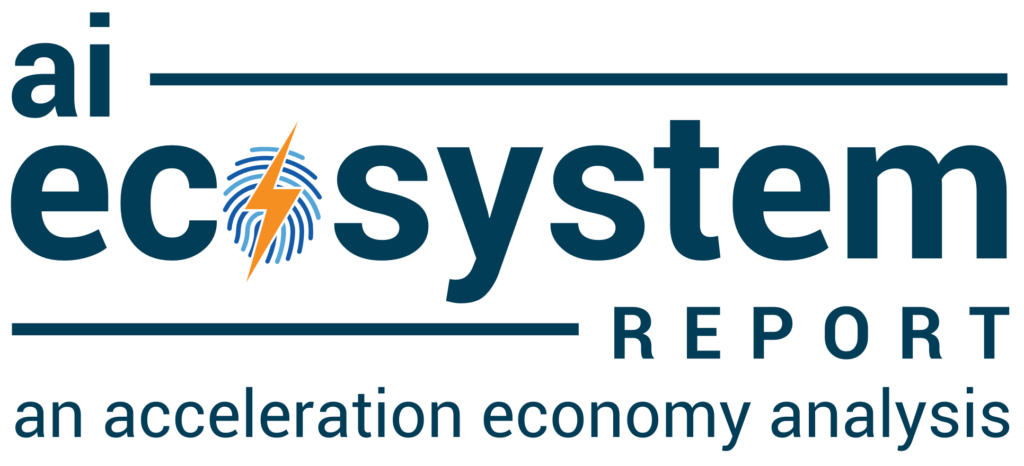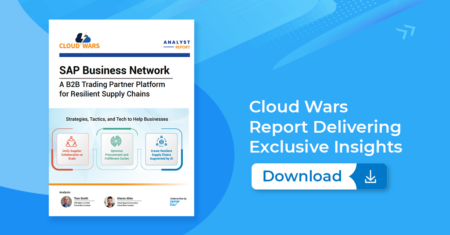
In the world of finance, every millisecond provides a stock trading advantage. Every insight helps investors assemble the optimal portfolio, maximizing gains and mitigating risk. A small discovery or tweak can mean millions, even billions of dollars in gains.
So while AI is being evaluated and applied in virtually every market sector, financial services is embracing it in a range of strategic ways as companies seek that financial edge; that includes tapping AI for data analysis and processing in support of major investment decisions.
One of the most promising applications of AI in the financial services sector is in private company investing. While it may not be the most widely discussed segment, the numbers speak for themselves: The market comprises approximately 30 million pre-transacted companies, surpassing the combined count of investor-backed and public companies, according to SourceScrub, a leading provider of AI-powered tools for “dealmakers,” founded in 2015.
New companies use the latest AI technology and models to solve real challenges in company investing, including:
- Improving the timing and targeting of companies looking for investment or exploring a merger or acquisition
- Automating key parts of dealmaking and due diligence, a resource-intensive process
In both cases, dealmakers turn to AI for speed and intelligence to gain every advantage in corporate investing. To understand what’s happening in this market, let’s examine two use cases.
Identifying Investment and Acquisition Targets
With roughly 30 million possible targets, growth investors, private equity, hedge funds, and corporate development teams compete to identify the best opportunities. For the analysts and dealmaking teams, it can be like finding a needle in a haystack. Today, many investment opportunities are identified by scouring databases, leaning on relationships, or reviewing lists of companies in particular sectors. That’s a considerable amount of manual work, and then people must monitor companies on an ongoing basis. Sounds like an excellent job for machines.
The need is to improve the timing and targeting of companies exploring a sale of the business or possible fundraising. The goal is to get into deals earlier to gain an advantage.
Ask Cloud Wars AI Agent about this analysis
One such company addressing this emerging need is Fintent. The company’s platform uses predictive signaling, leveraging natural language processing (NLP) and machine learning (ML) to understand activity within a company better and predict the likelihood of their readiness for transactions or investments.
At a high level, here’s how the system works using different flavors of AI:
- The first step is to build the target list via GenAI search in public mode, applying a comprehensive set of keywords pulled from the companies’ websites (about 10 million company websites plus firmographic information). This narrows the target list investors can focus on.
- With this intelligence, investors need to track and know when companies will likely explore investment or sale options. This step involves intent/predictive signals generated by NLP and applying topic labeling.
- ML is used to train the models with inputs such as past companies that have been acquired, raised capital, and comparisons with companies that have not raised funds yet. This creates a probability score (various scores are provided: CapRaise, M&A, and DealMaker, for example), which narrows the focus. As probability scores hit determined thresholds, analysts can focus on these companies.
- In parallel, AI gathers and analyzes industry trends and corporate-level activity. This provides a streamlined, modern process for identifying companies likely to be in the market and approaching companies or executives at the right time.
“There are so many companies, and sales cycles can be long in the investor world. Investors need better intelligence and every competitive edge they can get,” says Alex Lukashov, founder and CEO of Fintent. “So often, the investor who gets there first with the right intel has the edge in shaping and winning the deal.”
Ask Cloud Wars AI Agent about this analysis
Automating Due Diligence
Investors and financial analysts spend thousands of hours gathering, organizing, and analyzing reams of data to understand which companies are worthy of investment, how much to invest, and how to evaluate alignment with investment objectives.
It’s a thankless job for the pros who do this work. For context on how rapidly AI and data science are being applied:
- Gartner predicts that by 2025, AI and data analytics will inform more than 75% of VC and early-stage investor executive reviews
- VCs reportedly have $311 billion in unspent cash, and last year raised the lowest total — $67 billion — in seven years as they grew increasingly cautious about early-stage ventures
Inspired to improve the process, Stephanie Song partnered with Brian Fernandez and Anand Chaturvedi, two ex-Coinbase colleagues, to launch Dili. The company is taking on the challenge of making the due diligence process for capital markets more efficient for both buy-side and sell-side deal teams. The Dili platform uses AI to automate due diligence and portfolio management steps for private equity and VC firms.
The Dili platform follows the analyst workflow during the dealmaking process. Here is how the platform operates:
- It organizes all the firm’s deals and opportunities in one place via a single platform.
- AI is used to gather and unify all the available data and intelligence across multiple internal and external systems (rather than having to combine them manually)
- NLP and Name Entity Recognition (NER, an Azure AI Language feature) are applied to generate comparative investments and benchmarks to screen, qualify, and shape deals
- Machine learning models automatically generate tailored reports and documents for analysts and deal-making teams to review
Song, co-founder and CEO of Dili, recently told TechCrunch, “Analysts burn the midnight oil working hundreds of hours doing the work nobody wants to do. At the same time, funds are deploying less capital and looking for ways to make their teams more efficient while reducing operating costs.”
Dili isn’t the first or only company to apply AI to due diligence. You can also check out financial investment software firms Pitchbook and CapitalIQ. These two companies, among others, are also rapidly deploying AI to gather and provide fundraising data to streamline due diligence.
Final Thoughts
Financial services have always been at the forefront of technology use, and AI is no exception. It’s exciting to see how much innovation is happening and how emerging companies are finding smarter ways to get work done.
These new tools are prime examples of AI doing the work that many employees don’t want to do and that virtually no employess can do at the scale and speed required in the AI era.










